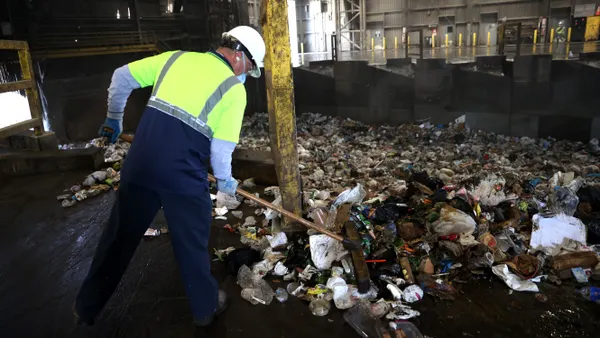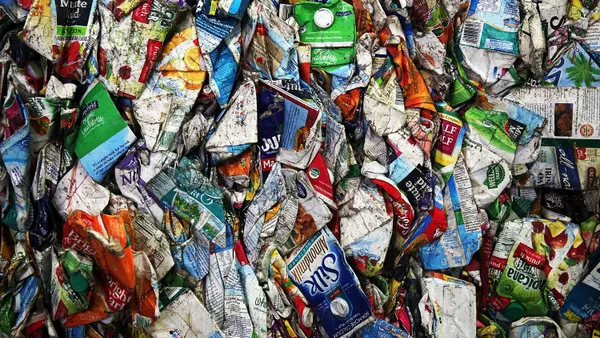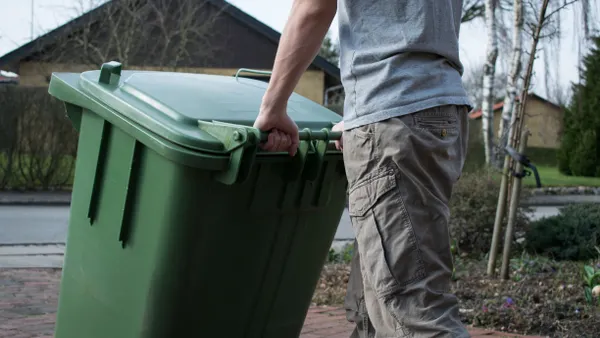Dive Brief:
- Citizens in the Chinese province of Zhejiang could soon see recycling violations recorded on their credit reports, according to a release from national news agency Xinhua.
- "The regulation on the management of household garbage in cities and towns stipulates that organizations, enterprises and individuals all have a responsibility and obligation to sort household garbage," the release says. Those that fail to do so could see penalties in addition to those on their credit record, while those that participate "will be rewarded."
- This is seen as part of China's broader effort to increase oversight on residents through a credit score system that could potentially inhibit their ability to get loans, as reported by Quartz. Violations ranging from jaywalking to smoking on trains have already been tied to credit scores in other Chinese cities.
Dive Insight:
Zhejiang, home to the city of Hanghzou, is one of the most densely populated provinces in eastern China. This is the latest in a series of signs that China is serious about improving its domestic recycling infrastructure. According to another recent Xinhua release, the country is requiring 46 cities to have mandatory waste sorting plans in place by 2020 and many are already underway.
That has become increasingly relevant to the global commodities market as countries adapt to China's recent import restrictions on mixed paper and mixed plastic, with the potential for further restrictions in 2019. This has led to an increased focus on proper participation and low contamination, among a range of other effects, in U.S. recycling programs. With margins tightening and some commodity values lower than in recent years, it's become imperative to make sure people are recycling correctly.
Unlike in China, the U.S. doesn't dictate any type of national recycling policy and local governments have little interest in tying people's sorting behavior to their credit reports. Instead, the latest trends in many cities have been cart-tagging, targeted education or monetary violations for incorrect sorting in certain cities. These efforts have begun to pay off in some cases, and more results can be expected in the future as pressure increases, but enforcement resources remain a common challenge.











